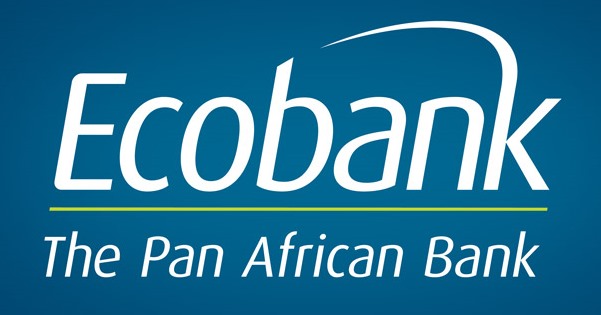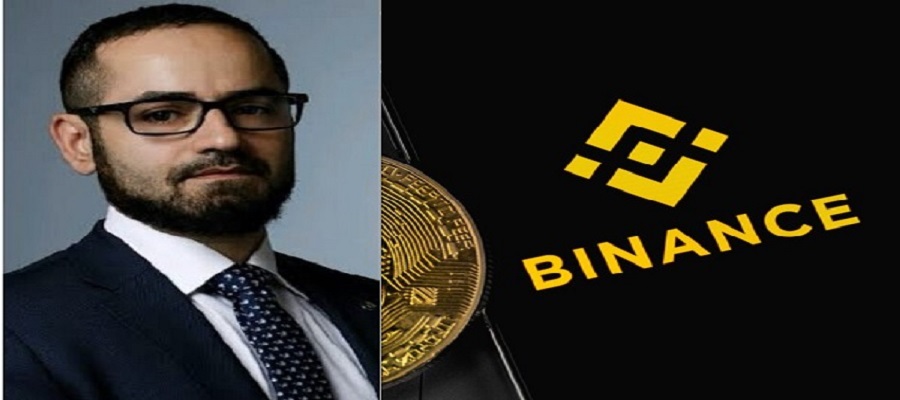E-Financial
Ecobank Group Opens 2020 Edition of Fintech Challenge

Ecobank Group, the pan-African banking group, is inviting African fintech entrepreneurs to enter the 3rd edition of the Ecobank Fintech Challenge. The Fintech Challenge gives African start-ups the opportunity to promote their fintech solutions, and potentially partner with Ecobank to roll-out their solutions across Ecobank’s 33 markets in Africa as well as France.
Ecobank welcomes submissions from all start-ups and developers in any of Africa’s 54 countries to enter its 2020 Ecobank Fintech Challenge.
All Finalists will be inducted as Ecobank Fintech Fellows, participate in a business boot camp followed by an Awards and Innovation Fair at the headquarters of the Ecobank Goup in Lomé, Togo in June 2020.
Eddy Ogbogu, Ecobank Group Executive, Operations & Technology, noted that “As a banking group we continue to be amazed at the many ways in which fintechs are transforming banking across Africa. We look forward to the new innovations and partnership opportunities that will come with the 2020 edition.”
Fellows will qualify to explore the following opportunities including:
– Multinational product roll out: an opportunity to pursue integration with Ecobank and potentially launch products in Ecobank’s Pan African footprint
– Service provider partnerships. Ecobank may select start-ups as a pan-African service partner within the bank’s ecosystem.
– Access to Ecobank’s Pan-African Banking Sandbox: Fellows will be given access to Ecobank’s APIs to test and improve their products for the pan-African market.
– Mentoring and networking support in the network of global and African partners of the Group.
Djiba Diallo, Ecobank Senior Fintech Advisor, said “The Ecobank Fintech challenge and fellowship have been improved upon to create even additional value for Ecobank and the Fintechs. We took feedback from the past editions and one of the major innovation this year is the opportunity for shortlisted Fintech’s to access our APIs through our Pan African Sandbox.”
Ecobank Fintech Challenge was designed in partnership with the advisory firm Konfidants and is supported by several partners across Africa and globally. Applications for the competition will close on 12th of April, 2020.
E-Financial
Cyber Crime: Hackers to Hold Secret Conference 3.0 July 25

The third edition of the annual cybercrime exposure and prevention event, The Hackers Secret Conference 2025 (THSC2025) is slated to be held on Friday, July 25, 2025.

The event, which aims to bring stakeholders together to keep them abreast of prevailing criminal activities in cyberspace and the required preventive measures, will host key industry players and speakers from different ICT platforms to real out intriguing information that will aid crime fighting in this cyber era.
The event, which is organized annually by IIMONEX ICT LTD, a prominent ICT firm in Nigeria, will be held at the Prestigious Sheba Event Centre at number 20, Mobolaji Bank Anthony Way, Ikeja, Lagos, Nigeria at 9 am.
Keynote speaker expected at the event is Dr. Harrison Nnaji (Ph’D), Group CISO, First Bank.
Other guests expected at the event are Obiora Awogu, CISO, MTN PSB, Prayer Ufot, Cybersecurity, Data Protection Expert and AI Generalist; Adesola Oguntimehin, Founder, Cyber Patron Network, Delight Hamilton, Information Security Officer, Piggyvest and
Chief Executive Officer of iiMONEX, Mr. Udoh Michael Essiet describes the event as a cyber defence conference that brings together Cyber Experts, thought leaders, cyber security students, technology companies and technology vendors to discuss the latest cyber threats and how to defend against them.
According to him, “This year’s edition we are focusing on skills acquisition, we want to create opportunities for cyber security beginners, intermediate and advanced level professionals to network with industry leaders and kick start their career as cyber security Analyst and ethical hackers.
“We also want to create a live penetration testing session during THSC2025, Participants will watch ethical hackers break down attacks and provide expert solutions.
“In this year’s edition, we also invite Software Brands to authorize our ethical hackers to test their digital products live to gain users trust and Brand exposure.”
The THSC initiator however urged industry players to braze up for the event and throw their weights behind it for an effective impact on the industry and across the globe.
E-Financial
SEC Flags ‘Punisher Coin’ As High-Risk Scheme

The Securities and Exchange Commission (SEC) has issued a strong advisory, warning the Nigerian public against participating in the presale or promotion of a new cryptocurrency known as Punisher Coin, or $PUN, citing regulatory breaches and a high risk of investor fraud.

In a public notice released on Sunday, the capital market regulator described the ongoing presale of Punisher Coin as “unauthorized and illegal,” warning that the asset and its promoters are not registered to operate within Nigeria’s capital market ecosystem.
“The attention of the Securities and Exchange Commission has been drawn to several online publications blatantly advertising the unauthorized presale of a cryptocurrency termed Punisher Coin, also known as $PUN,” the SEC stated, citing a report in the Daily Trust e-paper which claimed the coin could rival established tokens like Avalanche and Chainlink.
The Commission categorically disassociated itself from the coin and emphasized that neither it nor its promoters have received regulatory approval.
“Punisher Coin aka $PUN and its promoters are not registered by the Commission to promote, launch, sell, trade, or solicit investments from the Nigerian public,” the statement read.
According to preliminary findings, the SEC said Punisher Coin qualifies as a “meme coin”—a type of digital asset typically lacking intrinsic value, utility, or a defined project roadmap. These coins are often driven by social media hype and influencer promotion, which the Commission warned makes them especially vulnerable to manipulation and sudden collapse.
“Further investigation has revealed that Punisher Coin or $PUN is a meme coin. Meme coins generally have no use case or intrinsic value. Their price movements are usually driven by social media buzz and influencer promotion, which are prone to manipulation and abrupt collapses,” the SEC added.
The Commission cautioned that such tokens are commonly used in “pump-and-dump” schemes, where promoters artificially inflate a coin’s value through hype before selling off their holdings at a profit—leaving unsuspecting investors with worthless tokens.
“In light of these findings, any person who invests in such a scheme does so at his or her own risk,” the SEC warned.
Reaffirming its investor protection mandate, the Commission urged Nigerians to verify the legitimacy of any crypto asset offering, as well as the registration status of promoters and platforms, via its official fintech verification portal: SEC Fintech Verification Portal
This latest warning reflects the SEC’s growing concern over the proliferation of unregistered digital asset schemes targeting Nigerian investors amid a global cryptocurrency boom.
E-Financial
Gambaryan, Binance Executive Leaves Company after 8-Month Detention in Nigeria

Gambaryan, Binance Executive Leaves Company after 8-Month Detention in Nigeria
Tigran Gambaryan, Binance executive, is leaving the exchange after four years of service, eight months of which were marked by detention in Nigeria for money laundering allegations.

Tigran Gambaryan, Binance executive Pix created by photogrid
Gambaryan, praises Changpeng Zhao’s commitment to building a stronger compliance framework.
Having been cleared of all charges, Gambaryan’s departure from Binance marks the end of a tumultuous chapter for both him and the company.
Earlier yesterday, Tigran Gambryan shared an X post, announcing his departure from Binance. He wrote, “Today is my last day at Binance, marking the end of a chapter I’m deeply proud of.”
In a heartfelt farewell, Gambaryan reflected on his four-year tenure at Binance, where he built and led the company’s global investigations function.
Addressing founder Changpeng Zhao, he praised his commitment to building a stronger compliance framework. He noted,
“[CZ] was committed to bringing in experienced leadership to help the company engage more constructively with law enforcement. His support for our mission never wavered, and I’ll always be grateful for the trust he placed in me and the team.”
Further, he highlighted the team’s notable achievements during his tenure. Notably, the team handled over 57,000 law enforcement requests and provided critical support in cases involving financial crimes. He has also led the training of thousands of officials worldwide.
To exemplify, he highlighted cases like assisting the Royal Thai Police.
The team helped them in taking down a massive $270 million crypto fraud scheme targeting citizens in Thailand and the US. He also pointed to the collaboration with Nigeria’s EFCC to recover over $400,000 in illicit funds and provide advanced training to their agents.
Notably, his departure comes following Coinbase’s recent data breach.
The incident exposed personal details of prominent figures like Sequoia Capital’s Managing Partner, Roelof Botha.
Tigran Gambaryan was the Head of Financial Crime Compliance at Binance, who served the exchange for four years.
During a business trip to Nigeria, Gambryan was arrested along with another Binance executive over money laundering allegations.
During his nearly eight-month detention, Gambaryan reportedly endured harsh conditions that took a toll on his health.
Though Gambaryan suffered from malaria and pneumonia, he reportedly received inadequate medical care.
In addition, in a September 2, 2024, court hearing, Gambaryan was subjected to ‘inhumane treatment’ by Nigerian authorities, as evidenced by a video.
However, following consistent requests from his family and influential figures, Gambaryan was finally released and cleared of all charges in October 2024.
It is noteworthy that the Nigerian government sued Binance when the exchange was facing a lawsuit from the US SEC.
While Nigeria is still pursuing the case, the SEC recently dismissed its lawsuit against the exchange.

 Telecom3 days ago
Telecom3 days agoAirtel Recommits to Fraud Prevention after NCC’s N104m Fine for SIM Registration Breaches

 News3 days ago
News3 days agoIHS Nigeria Reaffirms Commitment to raising Nigeria’s Next Tech Giants from the Ilorin Innovation Hub

 E-Financial3 days ago
E-Financial3 days agoGambaryan, Binance Executive Leaves Company after 8-Month Detention in Nigeria

 General News3 days ago
General News3 days agoNITDA Makes Case for Inclusive Tech for Special Needs

 Telecom3 days ago
Telecom3 days agoMTN’s Female Leadership Surges to 41.4%, Doubles Industry Average

 Broadcasting3 days ago
Broadcasting3 days agoNCC Warns DJs: Playing Music Without License Could Lead to 5-Year Jail Term

 General News3 days ago
General News3 days agoInterswitch, Bank of Sierra Leone Champion Financial Inclusion @ Sierra Leone Fintech Forum 2.0

 Telecom3 days ago
Telecom3 days agoTikTok Rolls Out Personalization Tools for Nigerian Users



























